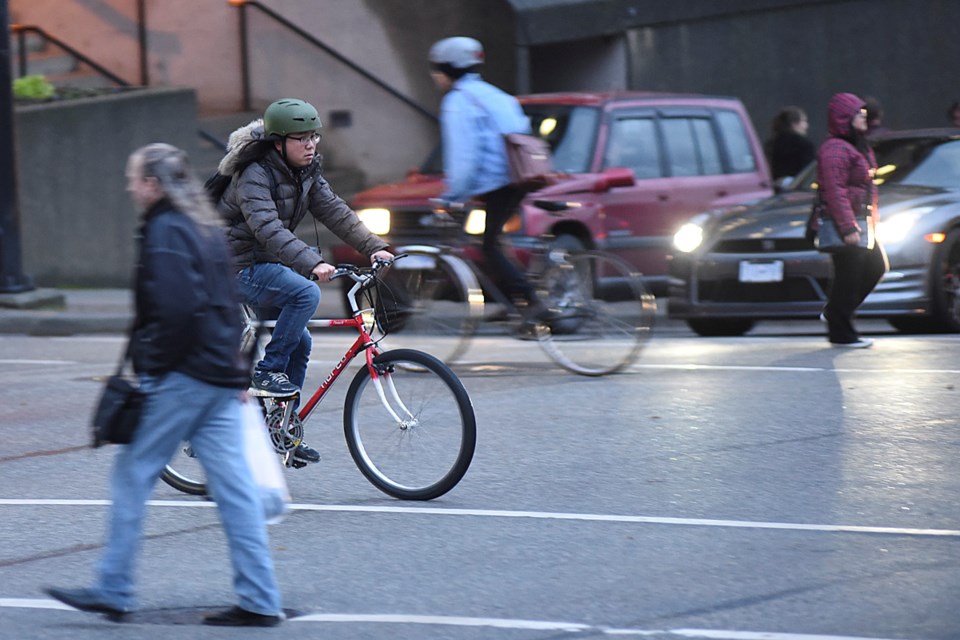Dear road users: We need to talk.
This is directed to everyone who shares our streets, including people in cars, on bikes, on foot and on public transit. It seems that over the years, in our efforts to maximize our time and productivity, arriving at our destination as fast as possible has made us less civil.
Somehow we’ve forgotten what connects us. We’ve forgotten we are all on the streets together.
Why should we care when, in reality, most of the people we pass each day are complete strangers, anonymous individuals we’ll likely never see again?
The trouble is, this is the mindset that has created a hostile environment on our streets and sidewalks, making them places where the mode of travel pits us against each other, creating an assumption that no one’s time is more precious than our own.
It is evident during rush hour when honking horns ring out, often because the car in front isn’t moving fast enough. Or as people pile out of buses and trains only to be pushed around by others trying to get on. Riding a bike around the city has even led to fast-moving cyclists nearly knocking down others in order to maintain momentum, not taking a moment to slow down and show some courtesy.
It leaves a lot of us with the assumption that we are all only looking out for number one. And it is a message that gets passed down to our children.
“Make sure you’re always paying attention because no one is paying attention to you.” Is this truly the message we want to be passing down to generations to come?
Our obsessive need to get there fastest leads to some pretty destructive behavior, and depending on the vehicle used to do so, can even result in the loss of life. With that reality check, is it worth it to not have taken 30 seconds to show some patience?
Imagine for a moment that everyone took a breath and remembered that the people around us are not different. They are parents, friends, co-workers, siblings and children — all pursuing the same goal of reaching their destination. That, instead of laying on the horn or speeding past someone moving slower, we take a moment to think about those people and who may be waiting for them at the end of their journey.
As children, we are taught manners and to take turns. We are generally encouraged to grow up to be good people. And we are, for the most part, until it is time to get anywhere. But there is hope — or at least I believe there is.
Just the other day, while nearing a traffic circle on my bike with my children at the same time as a motorist, my back instantly went up — as it often does — assuming the very worst. The rule is to yield to the vehicle in the traffic circle. We arrived at the same time, meaning we could have both entered and advanced counterclockwise to our right. But the motorist allowed us the extra time by smiling and waving my family through. I remember feeling shocked and elated. The driver could have been like most other commuters and just rushed on by — but didn’t. In taking that second to acknowledge me, we shared a smile and a wave.
This gesture was not an isolated case but it is rare. We should be doing the best we can to bring more respect and kindness to the streets.
By planning ahead, giving ourselves a little more time and, most importantly, remembering that each of us is as important as the other, perhaps we bring more civility to how we get around.
Kindness to strangers is what we should model to younger generations. We shouldn’t assume the worst in people and we should recognize our different needs and choices.
After all, we are all trying to get from point A to B.



